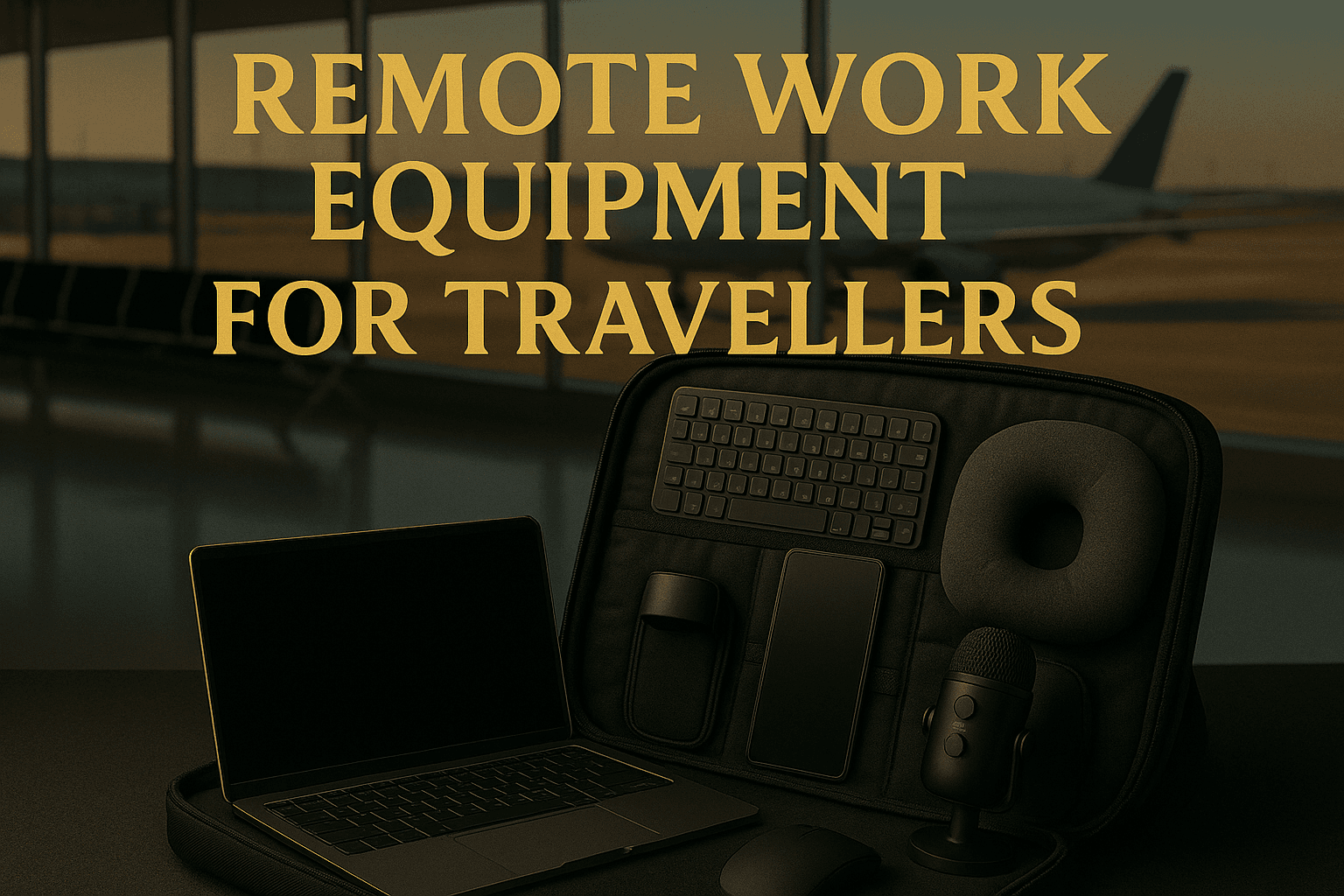Table of Contents
Understanding “Does remote work impact career progression?” has become essential as millions swap commutes for kitchen tables. It’s a question echoing through the remote work marketplace, freelancer websites, Slack channels, Zoom calls, and LinkedIn posts worldwide. Whether you’re a die-hard remote advocate or quietly nursing cabin fever after years of Teams meetings, the fear lingers: Will working from home slow down your climb up the career ladder?
The Traditional Career Ladder – And Its Invisible Rungs
Historically, career progression hasn’t been purely about doing your job well. It’s also been about being seen. The colleague who stays late – even if just scrolling social media – often gets more recognition than the one who works efficiently and leaves at 5:30.
When the workplace went remote, those spontaneous moments vanished overnight. You can’t accidentally bump into the CEO in the lift when the lift is your stairs at home.
Remote work doesn’t create this problem – it simply makes it more visible.

The Proximity Bias Problem
“Out of sight, out of mind” is alive and well. Proximity bias means managers unconsciously favour people they see often, assuming they’re more dedicated or productive.
When your boss can pop by your desk for a quick chat, you’re top-of-mind when interesting projects come up. But when they’d have to schedule a video call to reach you, there’s a tiny psychological barrier. It’s not malicious – it’s human nature.
Yet doom-laden headlines claiming remote work always kills careers miss the point. Smart remote workers find ways around this. They schedule regular one-to-ones, contribute meaningfully on calls, and make sure their work is visible.

What The Research Actually Says
Here’s where it gets interesting (and slightly frustrating). The research on remote work’s impact on career progression is mixed, and frankly, a bit all over the place.
Owl Labs research consistently shows remote and hybrid employees report higher wellbeing and job satisfaction than fully on-site workers, with 84% saying remote work would make them happier. LinkedIn’s Global Talent Trends reports show companies with flexible work policies tend to have better retention and engagement – both crucial for career development.
But then there’s the sobering stuff. A study from the US National Bureau of Economic Research found fully remote employees received fewer promotions than office-based peers, with managers admitting they struggled to evaluate contributions without physical presence. The UK’s CIPD research highlights potential challenges for remote workers, including communication barriers and reduced opportunities for informal networking and learning compared to office-based colleagues.
So yes, remote work can boost well-being, but it might also leave you out of sight and out of mind when promotion time comes around.
Real Stories: How Different People Navigate This
Consider two real-life examples that capture how differently remote work can impact careers:
Sarah, a marketing manager at a tech startup, felt invisible to senior leadership. Instead of grumbling, she began sending a concise weekly email to her boss highlighting her top achievements and upcoming priorities. Just three bullet points. Within six months, she was promoted to Head of Marketing.
James works at a traditional consultancy firm that technically “allows” remote work but clearly prefers people in the office. Despite being brilliant at his job, he’s been passed over for promotion twice in favour of colleagues who are physically present. Same skills. Different outcomes.
It’s not purely about where you work – it’s about who you work for and how you manage your visibility.

Remote Work Opens Completely Different Career Paths
While everyone’s debating whether remote workers get promoted in traditional companies, thousands are building entirely different careers that don’t depend on someone else’s promotion decisions. And honestly, some of these paths offer far better progression than any corporate ladder.
Take freelancing: Emma, a former HR manager, left her £45k corporate role to freelance as an HR consultant. Within 18 months, she was earning £80k annually with clients across three continents. Her “promotion” came through building expertise and reputation, not waiting for a manager’s approval.
Or consider remote consulting: the consulting world has exploded for remote workers because geography no longer matters. A marketing consultant in Manchester can serve clients in Silicon Valley, Sydney, Singapore, and Stockholm. This global reach dramatically expands both earning potential and career opportunities.
Then there’s entrepreneurship: Marcus started a productivity app from his London flat during lockdown. Two years later, his team of 12 remote workers serves 50,000+ users across 30 countries. His “career progression” wasn’t a promotion – it was building something from nothing.
The Freelance Career Path Nobody Talks About
While corporate remote workers navigate office politics from home, freelancers are building careers that work completely differently. There’s actually a clear progression path:
You start as a single-skill service provider – maybe copywriting, design, or development. Then you become a multi-skill specialist commanding higher rates. Next, you evolve into a strategic consultant advising on business outcomes rather than just delivering tasks. Finally, many become course creators, speakers, or industry thought leaders.
Many freelancers report earning more within two years than they ever did in corporate roles. The key difference? Direct client relationships mean your value is measured in results, not politics. No performance reviews where your manager’s mood affects your rating. No waiting for budget approval for your raise.

Remote Consulting: The Fast Track Nobody Sees Coming
Consulting might be the most dramatic career progression opportunity in remote work. Unlike traditional employment, consulting lets you set your own rates based on value delivered, choose your clients rather than being assigned projects, and scale through systems rather than climbing corporate ladders.
Here’s what a typical consulting progression looks like: Year one, you’re charging £500/day as a specialist consultant. Year two, you’re at £1,200/day as a strategic advisor. Year three, you’re hitting £2,000/day plus passive income from courses and speaking engagements.
The remote advantage is huge here. Traditional consulting often meant expensive travel and local market limitations. Now? Your potential client base is global, and video calls have made high-level consulting completely location-independent.
Digital Entrepreneurship: Where the Real Career Acceleration Happens
But if you really want to talk about career progression, let’s talk about remote entrepreneurship. While employees debate promotion prospects, remote entrepreneurs are building scalable businesses with unlimited growth potential.
The digital business models thriving in remote work include SaaS platforms serving global markets, online education businesses reaching thousands of students, e-commerce operations with international supply chains, and content businesses monetising expertise through multiple channels.
Remote entrepreneurship removes traditional barriers like office rent, geographical hiring limitations, and the need for local market presence. A well-executed remote business can scale globally from day one. That’s not something any corporate career can offer.
How Different Industries Handle Remote Career Growth
Not all industries are equal when it comes to remote career opportunities, and frankly, some are miles ahead of others.
The tech sector leads the pack. Companies like GitLab, Shopify, and Stripe have proven that remote-first cultures can accelerate rather than hinder career growth. Senior developers often progress faster remotely due to increased focus time and global collaboration opportunities.
Creative industries have embraced remote work enthusiastically. Designers, writers, and marketers often find remote work accelerates their careers by enabling direct client relationships that command higher rates, portfolio diversification across industries and geographies, and personal brand building through online content and networking.
Financial services has been slower to adapt, but fintech companies are leading the charge. Remote financial analysts and advisors increasingly serve international clients, expanding career opportunities significantly.
Professional services like legal, accounting, and consulting have discovered remote delivery models that improve both client satisfaction and career progression opportunities for practitioners.

The Skills That Remote Work Develops
Here’s something critics often miss: remote work forces you to develop must-have skills that are more valuable than ever in today’s economy.
You become sharper at managing time and priorities because there’s no manager hovering over your shoulder. You learn to communicate clearly and concisely in writing because everything has to be documented. You build stronger project management habits because you’re responsible for your own deliverables. You become more self-directed and proactive because nobody’s going to chase you for updates.
These are precisely the traits modern businesses crave. In fact, remote experience is increasingly seen as a strength on your CV, not a liability. It signals independence, communication skills, and the ability to deliver results without micromanagement.
Companies That Get Remote Career Development Right
Remote work itself isn’t the problem – outdated management practices are the issue. And you can usually spot the difference pretty quickly.
Some companies have genuinely rebuilt themselves around remote work, while others have merely slapped on a “remote-friendly” label while clinging to office-era habits like evaluating people based on hours logged rather than outcomes achieved.
The companies that get it right measure performance based on outcomes, not hours. They invest in proper collaboration and remote monitoring tools. Their senior leaders work remotely themselves, setting the tone from the top. Most importantly, they proactively ensure remote employees stay in the loop for promotions, stretch projects, and career development opportunities.
Companies like GitLab, Buffer, and Automattic didn’t just tolerate remote work – they built their cultures around it from day one. That’s why their employees often advance faster than they would in traditional office environments, not slower.

Your Practical Game Plan for Remote Career Success
So, does remote work impact career progression? Absolutely.
But whether that impact is positive or negative depends entirely on your approach and your environment.
If you’re working for a company that still thinks presenteeism equals productivity, remote working might stall your advancement. But if you’re with an organisation that’s embraced flexibility, or if you’re building your own path through freelancing, consulting, or entrepreneurship, you might find your career accelerates faster than it ever could in a traditional office.
For corporate remote workers, the strategy is about visibility and intentionality. Schedule regular one-to-ones and don’t wait for managers to remember you exist. Showcase your wins publicly – be your own PR team. Share achievements in Slack, Teams, LinkedIn, or company newsletters. Network intentionally by joining cross-functional projects, attending virtual meetups, or flying in occasionally for in-person events.
For aspiring freelancers, start building a portfolio while you’re still employed. Use side projects to demonstrate capabilities. Network in your target market by joining industry groups and contributing valuable insights. Start with small projects to test the waters before making the full transition.
For potential entrepreneurs, validate ideas remotely through online research and customer interviews. Build minimum viable products using no-code tools and remote teams. Test markets globally through digital marketing and sales channels.
The Future of remote Work Belongs to the Adaptable
Remote work has fundamentally changed career trajectories, and frankly, it’s about time. The traditional model of climbing corporate ladders in single companies is giving way to more dynamic, skills-based career development.
We’re seeing the rise of portfolio careers combining employment, consulting, and entrepreneurship. Global talent markets where location becomes irrelevant. Outcome-based evaluation is replacing time-based performance metrics. Continuous learning through online platforms and virtual mentorship.
The professionals thriving in this landscape are those who embrace the opportunities remote work creates rather than lamenting the loss of traditional office culture.
Conclusion
Remote work doesn’t kill careers – outdated management practices do. Whether you’re climbing the corporate ladder, building a freelance practice, launching a consulting business, or creating the next unicorn startup, remote work offers unprecedented opportunities for career progression.
The key is understanding which path aligns with your goals and adapting your approach accordingly. The future belongs to those who can deliver value regardless of their physical location.
Although, let’s be honest; there’s only so far you’ll go if your cat keeps walking across your keyboard during the quarterly board meeting.




